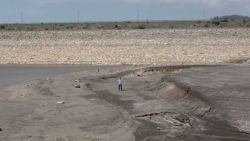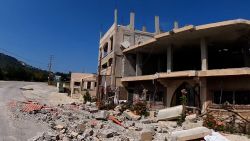Pope Benedict XVI has broken his silence in a rare essay on the sex abuse crisis in the Catholic Church, claiming that it was caused in part by the sexual revolution of the 1960s and the liberalization of the church’s moral teaching.
In the 11-page analysis published today in a German magazine for priests, Klerusblatt, the former Pope also reveals some of the behind-the-scenes struggles between the Vatican and American bishops in handling the crisis and admits that the Vatican was initially overwhelmed in dealing with it.
Catholic News Agency first published the letter in English on Wednesday afternoon.
A top Vatican official has confirmed the essay’s authenticity to CNN. Since his resignation in 2013, Benedict has rarely left his monastery high on a hill in Vatican City. In his farewell address as pope, Benedict promised to stay “hidden” from the world, though he has spoken out occasionally on church matters.
Nearly 92, Benedict appears to be frail but in relatively good health.
“Since I myself had served in a position of responsibility as shepherd of the Church at the time of the public outbreak of the crisis, and during the run-up to it, I had to ask myself – even though, as emeritus, I am no longer directly responsible – what I could contribute to a new beginning,” Benedict wrote, in explaining why he is speaking out now.
But his comments on the sex abuse crisis seem certain to inflame tensions between conservative Catholics, who largely blame homosexuality and lax sexual ethics for the scandal, and liberals, who say there is no known connection between homosexuality and pedophilia.
As word of Benedict’s essay spread Wednesday evening, conservative Catholics hailed it, while others called it “embarrassing.”
“This is an embarrassing letter. The idea that ecclesial abuse of children was a result of the 1960s, a supposed collapse of moral theology, and ‘conciliarity’ is an embarrassingly wrong explanation for the systemic abuse of children and its coverup,” wrote Catholic theologian Brian Flanagan on Twitter.
Shifting standards
In the essay, Benedict asserts that the changes in traditional moral standards on sexuality both in society and within the Catholic Church laid the groundwork for the sex abuse crisis.
“Part of the physiognomy of the Revolution of ’68,” he writes, “was that pedophilia was then also diagnosed as allowed and appropriate.”
Benedict says that this mentality also affected bishops and Catholic seminaries and caused, “the extensive collapse of the next generation of priests.”
“There were – not only in the United States of America – individual bishops who rejected the Catholic tradition as a whole and sought to bring about a kind of new, modern Catholicity,” he writes.
“In various seminaries homosexual cliques were established,” he writes, “which acted more or less openly and significantly changed the climate in the seminaries.”
Benedict cites one bishop who showed seminarians pornographic films, “allegedly with the intention of thus making them resistant to behavior contrary to the faith.”
Liberal theologians who questioned the church’s traditional norms on sexuality are also partly to blame, the former Pope says.
“There could no longer be anything that constituted an absolute good any more than anything fundamentally evil; there could be only relative value judgments,” the former Pope said, characterizing the liberal position on morality.
Benedict also reveals that the Vatican’s two investigations into US seminaries, called Apostolic Visitations, were thwarted by cover-up.
“The Visitation that now took place [1983-1987],” he writes, “brought no new insights, apparently because various powers had joined forces to conceal the true situation.”
The former Pope does not elaborate on who was involved in the alleged concealment.
“A second Visitation was ordered [2005-2006]” he writes, “and brought considerably more insights but on the whole failed to achieve any outcomes.”
The ‘absence of God’
Benedict also reveals a tug-of-war between the Vatican and US bishops over zero-tolerance.
The Pope Emeritus says that Church lawyers in Rome “had difficulty” with the US proposal for zero-tolerance and preferred that priests guilty of sexual abuse of minors receive only a temporary suspension.
“This could not be accepted by the American bishops,” he writes, “because the priests thus remained in the service of the bishop and thereby could be taken to be still directly associated with him.”
As a result, the former Pope writes, a new code of Church criminal law was created and cases of child sexual abuse were judged by the Vatican office of the Congregation for the Doctrine of the Faith, of which then-Cardinal Ratzinger was the head.
But Benedict admits that the prospect of full criminal trials for sex abuse was “overwhelming” for the Vatican.
“Because all of this actually went beyond the capacities of the Congregation for the Doctrine of the Faith and because delays arose which had to be prevented owing to the nature of the matter, Pope Francis has undertaken further reforms,” he writes.
The former Pope says that since the 1970s “the situation in seminaries has generally improved,” but that part of the answer to the crisis lies in returning to obedience and fidelity to Jesus’ message.
A large portion of the essay laments the increasing loss of religious beliefs in society in recent decades, which Benedict says is at the heart of the sexual abuse crisis.
“Why did pedophilia reach such proportions?” he asks. “Ultimately the reason is the absence of God.”
CNN’s Daniel Burke contributed to this report.
















